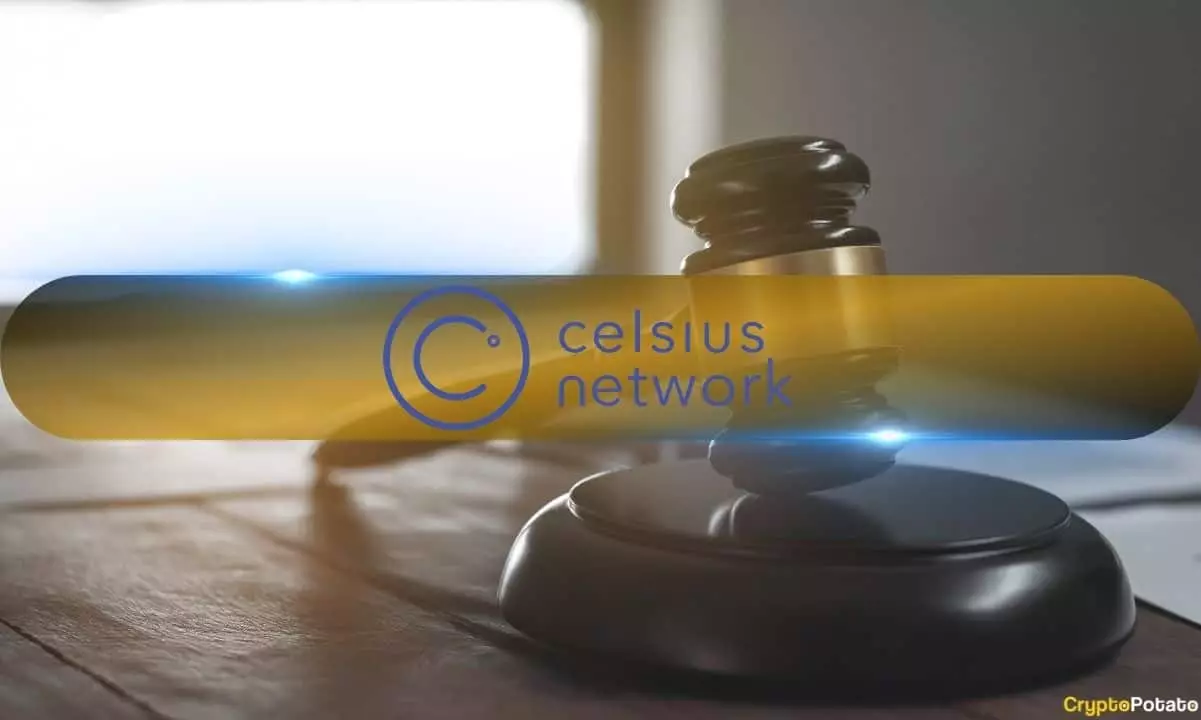In an unprecedented move, Celsius Network, which is currently embroiled in bankruptcy proceedings, has received permission from a Southern District of New York Bankruptcy judge to utilize non-fungible tokens (NFTs) as a method for serving legal notices. This innovative step highlights the complexities associated with cryptocurrency transactions and the challenges faced by legal systems in adapting to new technological realities.
Celsius Network is in the process of recovering funds that were allegedly misappropriated through fraudulent transfers to untraceable digital wallets. Cryptocurrency, by design, offers a veil of anonymity, making it particularly challenging to identify the individuals behind these transactions. In the wake of bankruptcy, Celsius has turned to litigation, seeking to void fraudulent transfers and reclaim funds to appease its creditors. Unfortunately, traditional methods of legal notification have proven ineffective in this situation, which led to the court’s approval of a more novel approach.
Rather than relying on conventional notifications, the Bankruptcy Judge sanctioned the use of NFT airdrops, which allows Celsius to directly send legal notices to the digital wallets involved in the alleged misconduct. Each NFT is embedded with a hyperlink that redirects the recipients to a dedicated website containing the legal complaint and pertinent documents. This strategy represents a significant pivot from conventional legal practices, effectively embracing the digitization of financial and legal processes.
To facilitate the delivery and receipt of the NFTs, Celsius enlisted the expertise of FTI Consulting. This firm is tasked with ensuring that the NFTs not only reach their intended targets but that they are accessed by actual individuals rather than bots. By tracking the NFTs on the blockchain, FTI will monitor user interaction, confirming both receipt and engagement with the legal documents linked within. This arrangement underscores a growing reliance on digital assets and services, as traditional legal practices may fall short in a rapidly evolving landscape.
The judge’s ruling was predicated on the principle that alternative service methods are acceptable under New York law, especially when conventional approaches fail to yield results. The judge found that traditional methods—such as sending notices to physical addresses—were impractical in this case, given the anonymity of cryptocurrency users. The court’s endorsement of NFT service indicates a broader acceptance of technological advancements in the legal arena, signaling a shift toward greater flexibility in legal service protocols.
Judge Martin Glenn remarked that Celsius’s strategy serves as a “best possible way” to enable defendants to receive legal notifications regarding their involvement in litigation. He commended the firm for its inventive approach, likening the use of blockchain wallet addresses to the early adoption of email for legal services. This comparison underscores a pivotal moment in which legal notifications are becoming as digitized as many aspects of modern life.
Celsius Network’s experiment with NFTs to serve legal notices paves the way for future innovations in the legal system, suggesting that as technology evolves, so too must the frameworks that govern it. This case illuminates the critical junction where law and innovation meet, offering potential solutions for other entities grappling with the anonymity offered by digital currencies. As the legal system contemplates more flexible methods of communication, the potential for efficiency and transparency grows, making it not only a compelling legal strategy but also a significant cultural shift in how society approaches the intersection of law and technology. The journey that Celsius Network has embarked upon reflects a broader trend toward integrating emerging technologies into complex legal processes, potentially changing the landscape of legal notifications forever.














Leave a Reply